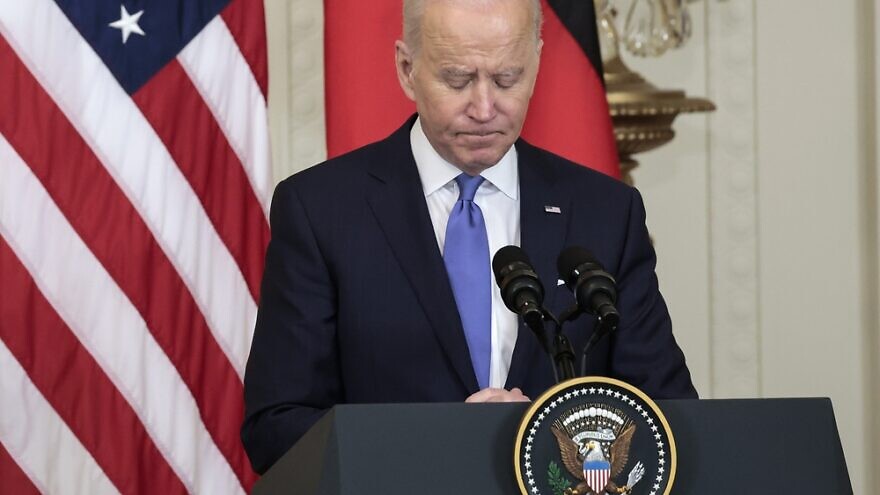Gabriel Noronha, who worked on Iran policy at the U.S. State Department under former President Donald Trump, was fired for speaking out against the then-president following the Jan. 6 riots on Capitol Hill. Now, with a Democratic administration in the White House, he’s warning against the Iran nuclear deal taking shape in Vienna.
In a conversation with Israel Hayom, Noronha said that U.S. President Joe Biden wasn’t calling the shots in the talks.
“I can’t say more than I’ve already said, but these are people familiar with details of the accord,” said Noronha with regard to his sources.
According to Noronha, U.S. delegation members are very worried about the deal on the table, which he said was “very dangerous” for U.S. national security as well as regional security. He noted Congress would not have the opportunity to review the details of the accord and would not be able to do anything about it.
According to Noronha, the new agreement includes sanctions relief that would see restrictions rolled back on a number of former senior Iranian officials who were allegedly involved in terrorist activity in the past.
One such official is Mohsen Rezaee, the former head of Iran’s Expediency Discernment Council and commander-in-chief of the Islamic Revolutionary Guards Corps. The International Criminal Police Organization, commonly known as Interpol, published a red order for Rezaee in connection with the 1994 bombing of a Jewish community center in Buenos Aires that killed 85 people and wounded hundreds.
Another official set to see sanctions relief thanks to the accord is Hossein Deghan, who served as IRGC commander of Tehran during the 1983 attack in Beirut that killed 241 U.S. troops.
According to Noronha, the coming Iran nuclear deal will be “far weaker and far more dangerous than the original accord” signed under former U.S. President Barack Obama in 2015, as world powers have agreed to rescind far more sanctions while “asking far less” of Tehran in return.
Noronha’s criticism is aimed in particular at senior Biden administration officials and U.S. Special Envoy to Iran Malley, who is conducting the nuclear talks in Vienna.
A number of senior delegation officials have already quit the team in protest against the White House’s approach to the talks. One of the officials to walk out was U.S. Deputy Special Envoy to Iran Richard Nephew.
Describing the resignations as “shocking,” Noronha said another two delegation members had dropped out of the talks in late 2021 out of concern over Malley’s approach. Noting it was “unprecedented” for delegation members to quit in protest against their leadership, Noronha said a lot of people at the State Department believe Malley is a weak negotiator who is damaging U.S. national security.
Asked why Biden was insisting on signing a deal, Noronha said, “I don’t think Biden” is in control of the talks. “He’s focused on China, on Russia and on domestic” issues. “I don’t think he’s giving it a lot of attention.”
According to Noronha, Biden has delegated authority to U.S. Secretary of State Antony Blinken and Malley. “I don’t think he’s making the decisions,” said Noronha. “I think Malley is making them.”
This article first appeared in Israel Hayom.


























